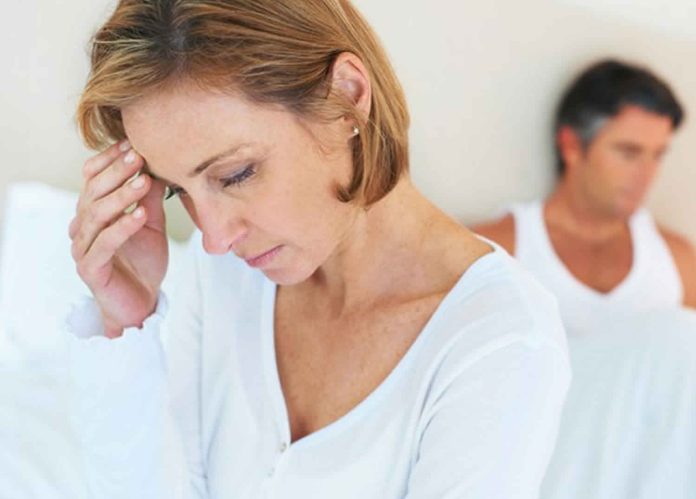There’s no reason to be embarrassed if you have vaginal dryness or pain with sex. After menopause, these things are pretty common. They’re part of a condition called genitourinary syndrome of menopause (GSM). There are a lot of ways to get help for your symptoms. And the fastest way to feel better is to talk to your doctor.
Before your visit, it’s a good idea to jot down all of your symptoms and questions so you remember them all.
Here are some questions to get you started:
- What’s the difference between a lubricant and a vaginal moisturizer?
- What are all of my treatment options for dryness and painful sex?
- Is estrogen safe for me?
- Are there natural ways I can find relief?
- What other symptoms can I get?
Why Does Sex Hurt Now?
Pain with vaginal sex is called dyspareunia. After menopause, the most common cause is lower estrogen levels. This can lead to vaginal atrophy. That’s when the tissue in your vagina gets thinner, less elastic, and tears easily. And you lose some of your natural lubrication. You may get a “sandpaper” feeling during sex.
You should tell your doctor how long you’ve had pain and dryness. The length and type of symptoms you have will steer your doctor toward the best treatment.
It can be helpful for you to describe how it hurts. Is there pain at the opening of your vagina? Or is it deeper inside? Do you have aches that linger after sex is over?
What to expect from your visit: Your doctor may give you a pelvic exam to check for changes in your vagina. They’ll look for signs of infection, irritation, or other non-menopausal skin conditions that can cause vaginal problems.
Will Dryness Go Away on Its Own?
Unlike hot flashes, your dryness won’t get better by itself. In fact, your symptoms may get worse without treatment. And your vagina may start to itch or feel dry all the time, not just during sex.
Are There Other Symptoms to Look For?
With less lubrication, the skin around your vagina — your vulva — may burn or itch. Menopause symptoms can also affect your bladder and urethra. You may pee more often or feel a need to get to the bathroom right away. You may get more urinary tract infections. If your vaginal tissue tears, you may bleed a little after sex.
Your doctor can help you find out if your symptoms are related to menopause or not. See your doctor right away if you have any bleeding. It may not be anything to worry about. But it could be a sign of something serious.
What Are the Treatment Options?
One of the best ways to keep pain with sex from happening is to have more sex. Regular sexual activity can bump up blood flow and moisture to your vagina. To help make intimacy more comfortable, your doctor will likely offer you a step-by-step approach. They’ll usually start with the easiest option and go from there.
Your treatment may include:
For dryness and atrophy:
- Lubricants to use during sex
- Vaginal moisturizers
- Low-dose vaginal estrogen
- Estrogen-like medicine
If muscle or vaginal tightness causes pain, you may need:
- Pelvic floor therapy
- Vaginal dilators
Don’t be afraid to ask your doctor a lot of questions. It’s their job to help you feel comfortable through your treatment process.
Source: webmd.com









